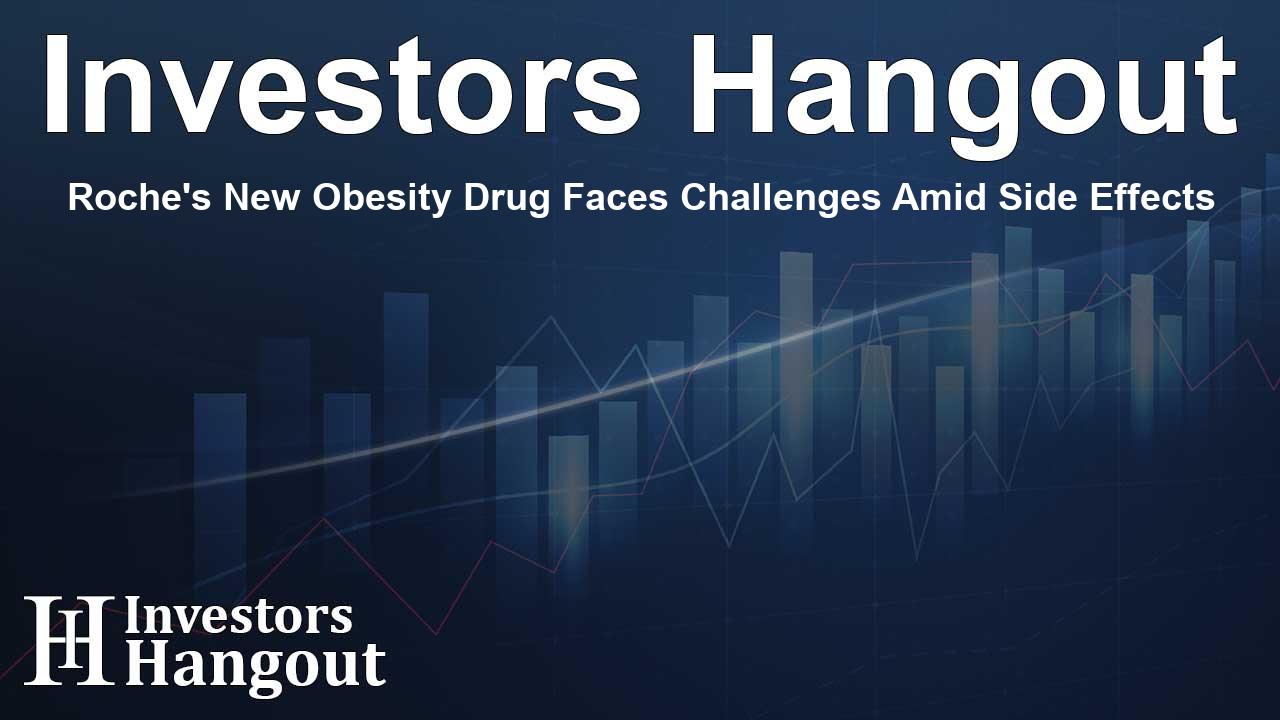Roche's New Obesity Drug Faces Challenges Amid Side Effects

Roche's Obesity Drug Trial Raises Concerns
Shares of Roche experienced a decline recently, attributed to the findings from a preliminary trial of their new obesity medication. Reports indicated a significant occurrence of temporary side effects, prompting reactions from both investors and analysts alike.
Trial Results and Investor Reactions
At one point, Roche's stock was reported to be 4% lower, trading at CHF 277.60. This downturn came after the company disclosed that all participants involved in their trial, even those administered a placebo, suffered mild to moderate adverse events primarily related to gastrointestinal issues. These findings were revealed during a conference for the European Association for the Study of Diabetes.
Understanding the Side Effects
According to Roche, these side effects align with those typically seen in similar weight-loss medications. Analysts from Jefferies pointed out that the heightened gastrointestinal side effects in their trial might dampen investor enthusiasm for Roche's obesity treatment line. They noted that both assets involved in the trial showcased higher than expected adverse reactions, which could be linked to the aggressive dosage increase strategy employed.
The Drug's Performance and Next Steps
In the trial, Roche's candidate, CT-996, showed a promising average weight loss of 6.1% compared to a placebo over a four-week period. However, the study's limitations were evident since results were drawn from a mere six participants, highlighting the data's preliminary status. Consequently, Roche plans to embark on further trials with extended durations and a more gradual dosage increase strategy to accurately evaluate the drug's safety and efficacy.
Future Outlook
The implications of these findings on Roche's future in the obesity treatment market will remain to be seen. While initial results are encouraging regarding weight loss, the safety profile is paramount for the acceptance of any new medication by both doctors and patients. Roche's considerations for a slower dosage increase and longer studies demonstrate their commitment to ensure a thorough evaluation of any potential treatments.
Frequently Asked Questions
What led to the decline in Roche's share prices?
The decline was primarily due to concerns raised from the early-stage trials of their obesity medication, which reported a high incidence of side effects.
What types of side effects were reported in the trial?
Most side effects observed were mild to moderate and primarily gastrointestinal in nature.
What was the average weight loss reported in Roche's trial?
The trial showed an average weight loss of 6.1% compared to a placebo over four weeks.
How did analysts respond to Roche's results?
Analysts expressed caution, suggesting investor enthusiasm might dwindle due to the reported side effects from the trial.
What are Roche's next steps following the trial findings?
Roche plans to conduct further studies to address safety and efficacy issues with a focus on longer durations and slower dose escalations.
About Investors Hangout
Investors Hangout is a leading online stock forum for financial discussion and learning, offering a wide range of free tools and resources. It draws in traders of all levels, who exchange market knowledge, investigate trading tactics, and keep an eye on industry developments in real time. Featuring financial articles, stock message boards, quotes, charts, company profiles, and live news updates. Through cooperative learning and a wealth of informational resources, it helps users from novices creating their first portfolios to experts honing their techniques. Join Investors Hangout today: https://investorshangout.com/
Disclaimer: The content of this article is solely for general informational purposes only; it does not represent legal, financial, or investment advice. Investors Hangout does not offer financial advice; the author is not a licensed financial advisor. Consult a qualified advisor before making any financial or investment decisions based on this article. The author's interpretation of publicly available data shapes the opinions presented here; as a result, they should not be taken as advice to purchase, sell, or hold any securities mentioned or any other investments. The author does not guarantee the accuracy, completeness, or timeliness of any material, providing it "as is." Information and market conditions may change; past performance is not indicative of future outcomes. If any of the material offered here is inaccurate, please contact us for corrections.